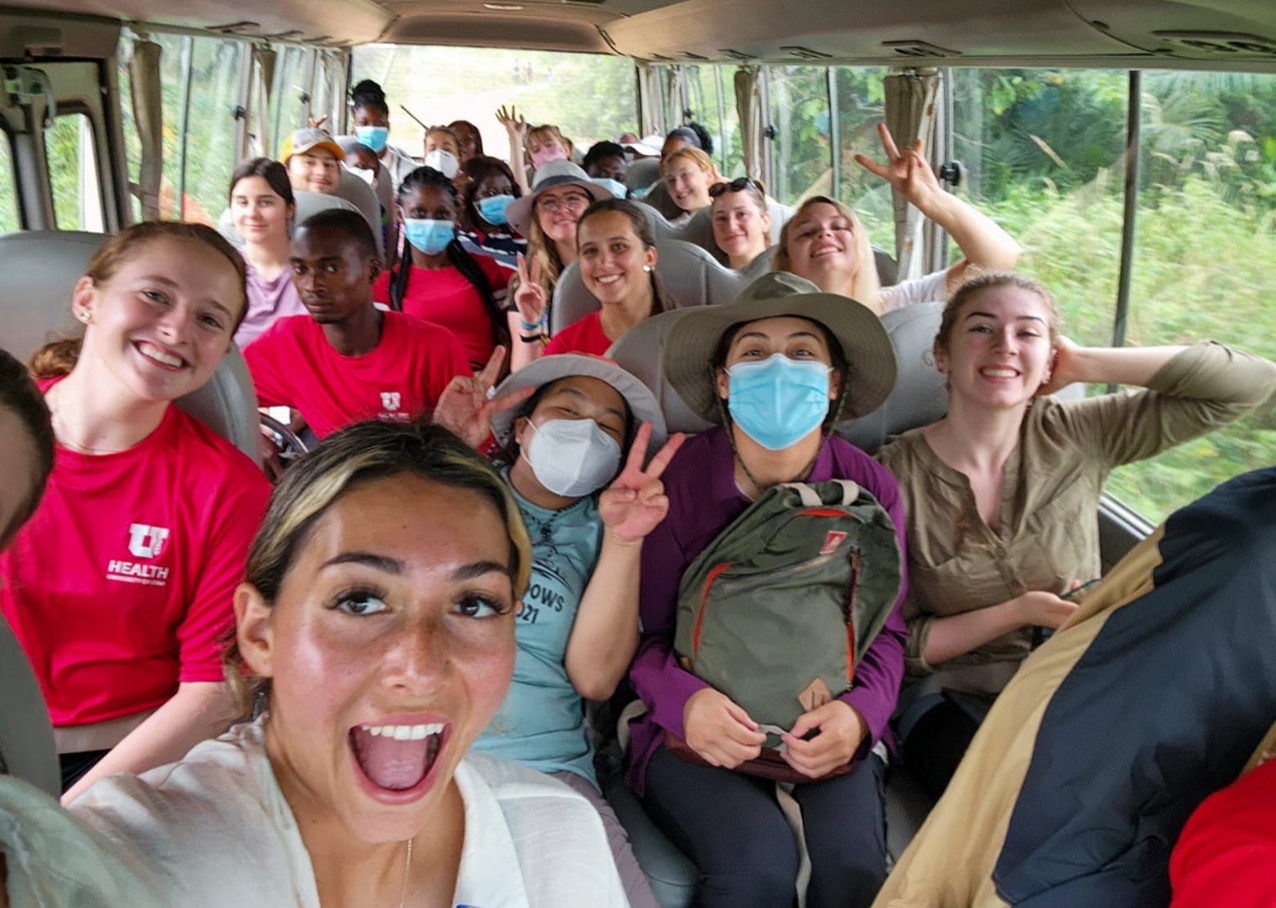Knowledge is key for addressing global health challenges, and the best way to advance that knowledge is to center research at the community level, allowing local individuals and institutions to collaborate and share their unique expertise and understanding. To that end, for more than two decades the Division of Public Health’s Global Public Health Learning Abroad program has matched students with seasoned University of Utah Public Health faculty to train student researchers in Ghana, India, and Peru. Working side by side with community health workers in these countries these teams develop important research at the cutting edge of global health.
Utilizing state-of-the-art training, grounded in community engagement and global health scholarship, the Learning Abroad program helps students from the U.S. learn about local responses to a wide range of health concerns, including issues such as access to fresh water and sanitation, child survival, and gender equity. Under the guidance of their faculty mentors, students approach these complex health issues in a social-ecological context that considers everything from individual health beliefs and behaviors, to family and community dynamics, culture, and national policies.
The community-based model is the cornerstone of the Learning Abroad program, and it is a major part of its appeal to students interested in global wellness solutions.
“We were able to work with some incredible people, both from the U and from Ghana,” said PharmD student Rachel Fagergren in a recent Global Health Grand Rounds about her experience in the program’s Africa outreach, where she worked with community leaders to document local attitudes and practices related to their country’s COVID-19 pandemic response. “The [Ghanaian] community health workers were instrumental, providing great context and allowing us to be welcomed into their communities.”
Fagergren is not alone in being impressed by the experience of working with local experts. Living and working with the communities they are studying is transformational for many learners. Not only do students get to see challenges faced by community health workers in new contexts and settings, but they are also given the opportunity to develop skills in real-world scenarios that are very different from the classroom.
Even better, the programs often pair students from the United States and the host country to conduct research together, creating a rich cultural and scholarly immersion.
“The first thing participants gain is a basic understanding of the complexity of global health issues, which involve the United States and other countries as well,” said Dr. Tejinder P. Singh, director of the division’s Learning Abroad Program in India. “You learn that the people in other countries are no different from you, and you are no different from them. This gives a basic understanding of the complexity of global health issues and the need and value of integrated global action.”
Students in the Learning Abroad program do not stop at gaining insights and perspective on global health issues, however. The program trains students to take those observations and data gathered in the field and turn them into academically sound, impactful scholarship.
From the generation of Institutional Review Board submissions to published manuscripts and posters, students of the Learning Abroad program are given hands-on experience in the entire lifecycle of research projects.
Many students begin their careers as researchers based on their experiences in the program, and student efforts within the program have generated nearly 20 peer-reviewed publications and over 70 presentations at local, national, and international conferences.
This academic output isn’t limited to current students of Public Health or even students at the University of Utah; everyone is welcome to join the program, and professionals wishing to learn more about global health are encouraged to participate.
“One of the critical things about the Learning Abroad program is that we are focused on global health, not on global healthcare,” said Dr. Scott Benson, director of the Ghana and Peru Learning Abroad programs.
“There is a role in global health for everyone. You don’t need to be pre-clinical or clinical to participate. We need economists, we need clinicians, we need historians, we need behavioral scientists—we need individuals of all groups participating. The Learning Abroad program gives that diverse group of students the opportunity to go out of their comfort zone to practice what they are learning in a monitored environment, with partners who are understanding and flexible.”
This interdisciplinary approach to global health is not the only internationally-focused offering from the Division of Public Health. A Master of Public Health (MPH) degree with a Global Health concentration is now offered, as well as a Graduate Certificate in Public Health, and the MPH degree can be pursued at both the Salt Lake City campus and the University of Utah Asia Campus in Incheon, South Korea.
These programs provide a deeper understanding of the theory of global public health and strategies for approaching scholarship in a way that prizes local community response and participation.
Ultimately, the goal of all Global Health programs at the U is to create resourceful and knowledgeable health scholars and practitioners through hands-on experience and exposure to evidence-based and equitable approaches in global health.
“Our programs are geared toward U students, but also available to students at other schools as well as life-long learners,” said Dr. Sharon Talboys, director of the Learning Abroad and Continuing Education for the division. “Our goal is to prepare the next generation of global health leaders and researchers who will make a difference.”

